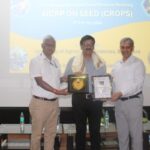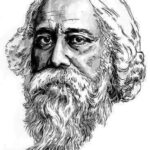
A summary is a short and concise representation of the main points, ideas, concepts, facts or statements of a text written in your own words. Unlike a paraphrase, which is generally of a similar length to the original text, a summary is much shorter.
When either summarising or paraphrasing, you should not alter:
- the author’s original idea(s)
- the degree of certainty with which the ideas are expressed.
| How to summarise? |
To create / write a good summary, you should read the article or text a number of times to develop a clear understanding of:
- the author’s ideas and intentions
- the meaning and details
- the force with which the ideas are expressed.
| Referencing |
- Summaries need to be referenced. Whether you have summarised or paraphrased an author’s words, thoughts, ideas etc, a citation to the original source of the words, thoughts, ideas etc must be provided.
| Writing a Summary |
Use the following steps to write a summary.
Step 1
- Write notes in point form using keywords; this will make it easier to express the ideas in your own words.
Step 2
- Write the summary directly from your notes without re-reading the passage.
Step 3
- Refer back to the original to ensure that your summary is a true reflection of the writer’s ideas.
Tips
- Topic sentences provide a quick outline of the main idea(s) presented in a paragraph.
- When summarising a chapter or article, the introduction and conclusion should provide a good overview of the content.
| Abstracting |
- An abstract is a concise and accurate representation of the contents of a document, in a style similar to that of the original document.
| Purpose of abstracts |
- As an aid to the reader. It helps the reader assess the contents of a document without having to read the whole document.
- The reader can narrow the selection of documents based upon their abstracts. It increases the efficiency of searching.
- Professional abstractors Employed by organisations to abstract numerous documents. If they know the subject well enough, they can write a good abstract.
- Authorsmany publications, conferences, ask the author to include an abstract of 100-200 words with the original document. This saves time, but authors are not always good as abstractors.
- Abstracting services
- Abstracts are used in abstracting services, such as Library and Information Science Abstracts (LISA).
- This serves –
- current awareness
- retrospective searching
- value of an abstract
- Abstract length.
- Abstract orientation
- Abstract quality
- Nature of the original document
- 1. Abstract length.
- Long abstracts have more detail. They will be found more often by keyword searches. This may be what the research wants, but it will be have low precision.
- Short abstracts are quicker to read. They can be more precise but there will be lower recall.
- 2. Abstract orientation
- Professional abstracting is done for a special market. Some abstracts are written for a general audience.
- 3. Abstract quality
- Not all abstracting is of high quality. Author abstracts are often low quality. Professional abstracts are usually better.
- 4. Nature of the original document
- Abstracts can be in a different language to the original. As an example, the original document is in English, and the abstract is in Vietnamese.
| Types of abstract |
- Informative abstracts
- Indicative abstracts
- Critical abstracts
1. Informative abstracts
- Represent as much of the information from the document’s content as possible. This means they can be long (up to 500 words). Good for documents describing research that contains a single process. Not good for review documents with many different concepts to describe.
- An informative abstract stands in the place of the real document. It may be all that researchers need to read – the abstract contains enough information for their purposes
2. Indicative abstracts
- Indicates general content without trying to describe it all. Usually a list of topics but no detail.
- Very useful as a selection aid – will contain all relevant keywords.
- Easier to write than informative abstracts!
- An indicative abstract does not stand on its own. It leads the researcher to the full document. The abstract helps with searching the literature.
3. Critical abstracts
- Does more than just describe content.
- Evaluates work and places it in context, so write of abstract is adding personal opinion to abstract.
- Not common.







Leave a Reply